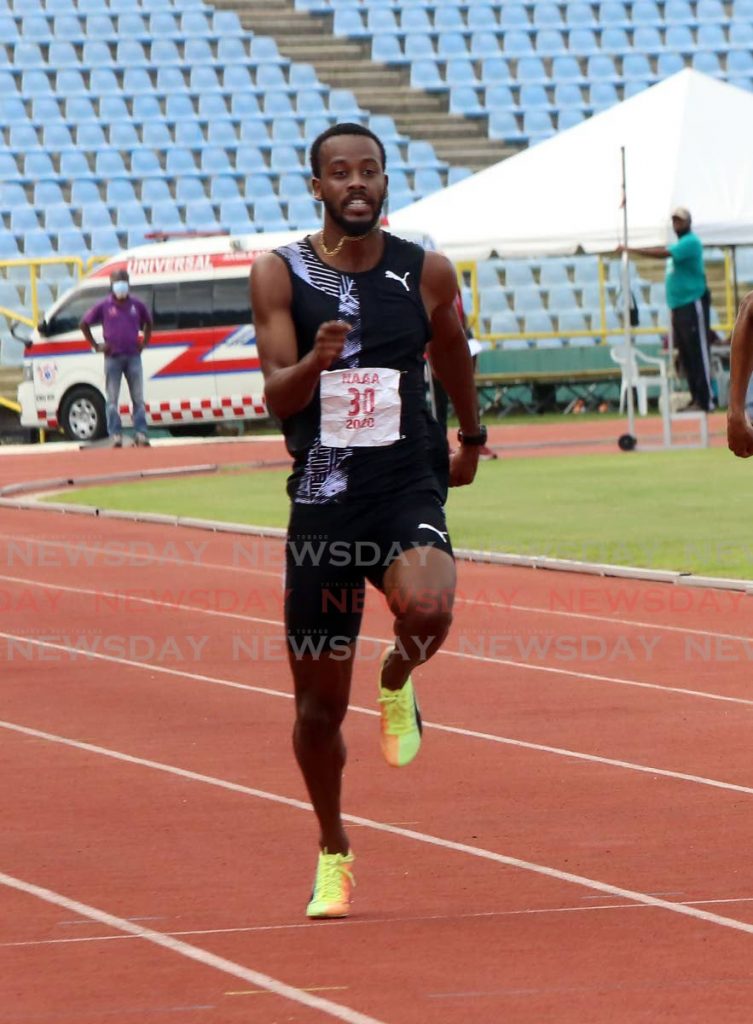
Trinidad and Tobago athletes bemoan challenges of attaining Olympic dream
![]() : Newsday : Jelani Beckles : 25.06.2021
: Newsday : Jelani Beckles : 25.06.2021
TT ATHLETES Kirdell McIntosh and Jonathan Farinha believe lack of competition and limited access to training facilities have hindered their progress and they have not been given the opportunity to fulfil their potential.
Several TT track and field athletes have qualified for the 2020 Tokyo Olympics, but the National Association of Athletics Administrations (NAAA) has arranged two local meets to give others an opportunity to qualify for the Games, which run from July 23-August 8.
The Olympics were postponed for a year because of the covid19 pandemic.
TT athletes based in the US have been competing regularly over the past few months, as covid19 cases there are on the decline. Jereem Richards and Michelle-Lee Ahye, who have both qualified for the Olympics, are competing often in the US.
Local athletes, based at home, have not been as lucky, as meets have been few and far between.
The first NAAA meet was held last Monday at the Hasely Crawford Stadium in Mucurapo, with the second scheduled to be held on Sunday at the same venue. None of the athletes who competed on Monday achieved the Olympic standard.
McIntosh clocked 49.12 seconds to win the men's 400-metre event, but did not achieve the Olympic time of 44.90.
On Wednesday, McIntosh told Newsday he felt he was in with a golden opportunity to earn selection on the men's 4x400m team for the Olympics.
"I think that I had a fairly good chance of being a part of the men's 4x4 team this year...currently the athletes who are abroad, within the college system, most have not had a good season due to injuries or whatever personal struggles they would have faced."
McIntosh said if he could complete the race near the 46-second mark on Sunday he may be included in the relay team, which includes four starters and two reserves.
"How I started my season...I think that within the couple months that I had I would have been able to attain it."
McIntosh opened his season running 48 seconds and believes with regular competition he could have trimmed a second or two off that time.
His training regime has not been ideal.
"The last year was difficult," he said.
Athletes have been allowed to use stadiums such as Hasely Crawford and Larry Gomes (in Arima), but just three or four days a week at times during the pandemic.
"It was kind of difficult getting yourself prepared for this moment (Olympic trials)," McIntosh said. He was limited to training in his yard, doing various exercises in an effort to stay fit.
McIntosh also decided recently to abandon training, as there was no confirmation of meets.
"I took it upon myself to stop training because there wasn't any improvement in the situation pertaining to us having any competition."
He said it was like training in vain. A week before the first trial meet he discovered there would be an event to compete in.
McIntosh is not letting the situation stop him from his goals, as he is targeting meets in the coming years if his Olympic dream does not become a reality.
McIntosh and Farinha will vie for Olympic qualification again on Sunday at the second NAAA meet.
Farinha won the men's 100m event in 10.39, falling short of the standard of 10.05.
Speaking about Monday's meet, Farinha said, "This is my second race for the season. All the athletes in the United States have run approximately ten races or eight races...this is my second race and I am currently ranked sixth or seventh among everyone and I have only run two races."
Farinha said a lack of competition is holding him back from attaining his potential.
"I am expecting something faster this coming weekend...my Olympic dream is not cut short yet."
Farinha has been representing TT since the junior level, alongside his twin brother Nathan.
"Many times we wanted to give up within the past year or two," Farinha said. However, making TT proud has propelled them to keep fighting.
"At the end of the day it has been a total challenge not being able to get the support from TT, not being able to train properly, (such as) going to the stadium...this year has been a total challenge."
On not being able to compete often, Farinha said, "As athletes, the more you compete is the better you perform."

